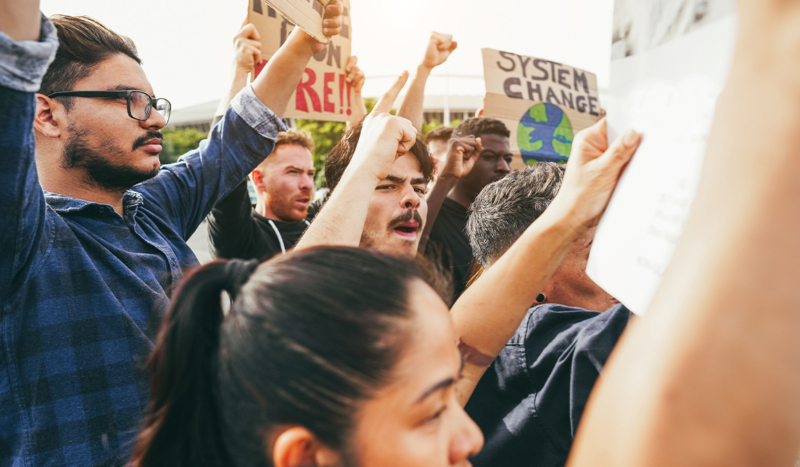
CV NEWS FEED // Studies show that being left-wing tends to make people less happy, according to author and journalist Ian Leslie.
Leslie recently wrote a substack article highlighting differences between left and right-wing people, reporting that “in its more extreme form, the liberal mindset is unhealthy and self-harming.”
Citing the research of sociologist Mus al-Gharbi, Leslie wrote that the trend isn’t just confined to younger generations. Instead, left-wing individuals tend to have worse mental health than right-leaning people across all generations and both genders.
“What causes this gap? Al-Gharbi outlines competing hypotheses,” Leslie wrote. “Conservatives tend to be more religious, more patriotic, and more married, and all these things correlate with happiness.”
Another theory is that conservatives are people who enjoy inherited advantages,” he continued, disproving the theory by pointing out that rich people across the world tend to be more left-leaning individuals.
Leslie also wrote that left-wing people tend to embrace emotions and mental health issues—they are far more likely than right-leaning people to seek medical diagnoses for low or moderate mental health symptoms. However, right-wing individuals are as or more likely to seek help for severe mental health symptoms, Leslie added.
“Liberals not only tend to be more emotionally unstable, they also value emotionality more than conservatives – they like to dwell on emotions, to talk about them, to expound on trauma and pain,” he wrote, continuing:
By presenting these findings, I don’t mean to suggest that the ideological well-being gap implies everyone should be more conservative. First of all, what makes one happy or not is a rather narrow way to think about one’s political beliefs, and even on those terms, it wouldn’t make sense for everyone to be conservative …
Second, you can plausibly argue, as liberals often do, that unhappiness or at least deep dissatisfaction is a rational response to reality – to climate change, inequality and injustice, and so on.
Leslie added that left-wing people tend to be more political than their right-wing counterparts, asserting that everything is “inherently political,” from cookbooks to music to science.
“There’s an element of status display in pushing politics into everything: the implication is usually that anyone who doesn’t agree is either complicit in oppression or, worse, naive and unsophisticated,” he wrote.
He additionally pointed out that even if left-wing people find meaning in political activism, as someone else might find in religion, a close involvement in politics has been proven to be bad for mental health, while religion tends to have the opposite effect.
“The political dimension of our existence is important. It’s crucial to be aware of how, in every walk of life, the strong are prone to exploit the weak,” Leslie concluded. “But whenever we can, we should keep politics in its place, lest it becomes a distorting lens … Any politics which doesn’t recognise its own limits will generate misery.”

